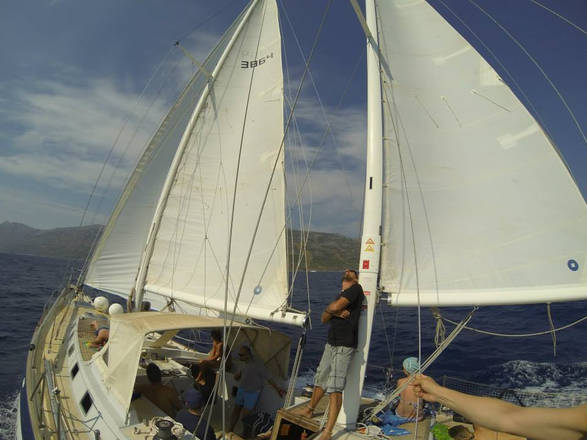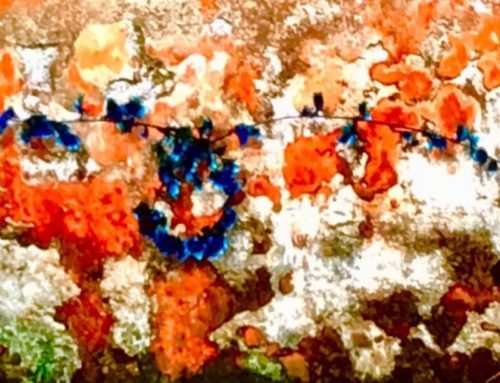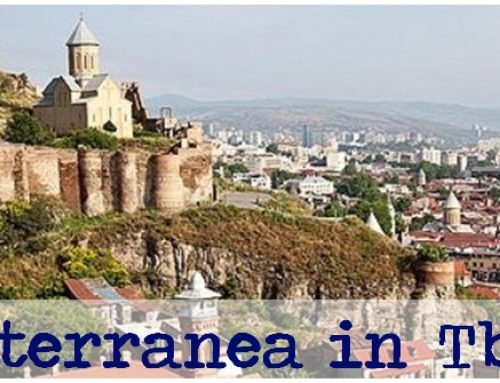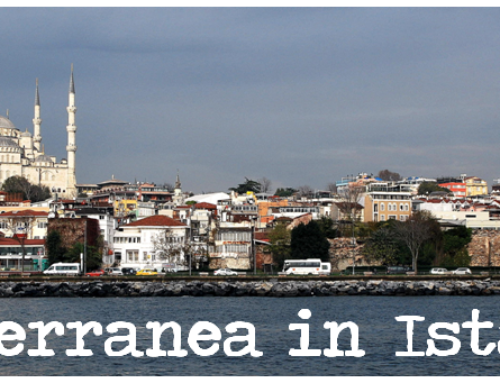
Cooperation with Sahfos. Project endorsed by Foreign Ministry.
With a few days to go to the departure, the sailing, cultural and scientific expedition “Mediterranea Project” received the patronage of the Italian Foreign Ministry and announces its first initiatives in the scientific field. A take by Ansa tells the latest news from the boat.
(ANSAmed) – Rome, May 8 – With a few days to go to the scheduled date of departure from the port of San Benedetto del Tronto on May 17th, organisation of the “Mediterranea Project” is proceeding, especially concerning marine-science activities.
The boat will operate as a floating lab for science, hosting onboard, among the others, British researchers belonging to SAHFOS (The Sir Alister Hardy Foundation for Ocean Science), which has been conducting the Continuous Plankton Recorder (CPR) survey since 1931. During a five-year mission in the Mediterranean Sea, the Black Sea and the northern Red Sea, research activities on biodiversity will be conducted onboard the Mediterranea boat.
For over a third of this wide expanse of sea, especially in waters close to north Africa, data will be collected for the first time ever. The “Mediterranea” project has heard the alarm of scientists and is bringing them together to study how the Mediterranean biodiversity is changing. The Mediterranean is one of the major reservoirs of marine and coastal biodiversity, with up to 18% of the world’s macroscopic marine species, yet this is under constant, growing human pressure which is significantly altering its characteristics.
The “Mediterranea” has been made available for SAHFOS researchers to assess and compare the biodiversity of marine plankton across the Mediterranean, the Black Sea and northern Red Sea.
For the first time in history a sampling will be conducted in some regions of the Mediterranean basin where data on plankton are not yet available (e.g. the North African coast) and data comparisons will be done in the areas where information on plankton are available on regional scale thanks to previous oceanographic expeditions (e.g. the north-western Mediterranean).
The plankton samples, collected at the surface by towing in continuous a small plankton indicator behind the boat and, in some reference spots also on the water column using a small net, will be stored on board and periodically sent back to SAHFOS headquarters for the analysis of phyto and zooplankton, so that the list of recorded species will be regularly updated and made available to the scientific community, stakeholders and the public in a ‘plankton bulletin’. At the end of the project the main eco-regions and hot spots of marine plankton biodiversity in the Mediterranean and adjacent seas will be identified.
The comparison of plankton communities and their environments in recent and previous years will contribute to identifying the Mediterranean regions in which marine biodiversity is most at risk due to climate change, intensive urbanization, overexploitation of resources, proliferation of introduced species (via marine transport or through the Suez Canal) and pollution caused by anthropogenic activities. Plankton collected during the expedition will be included in the SAHFOS reference collection of worldwide plankton (Mediterranean Plankton Museum).
To support this scientific expedition, Mediterranea Project and SAHFOS will soon start a crowdfunding campaign in order to sustain the research activities onboard. (ANSAmed).
Read here the complete press review.






Leave A Comment